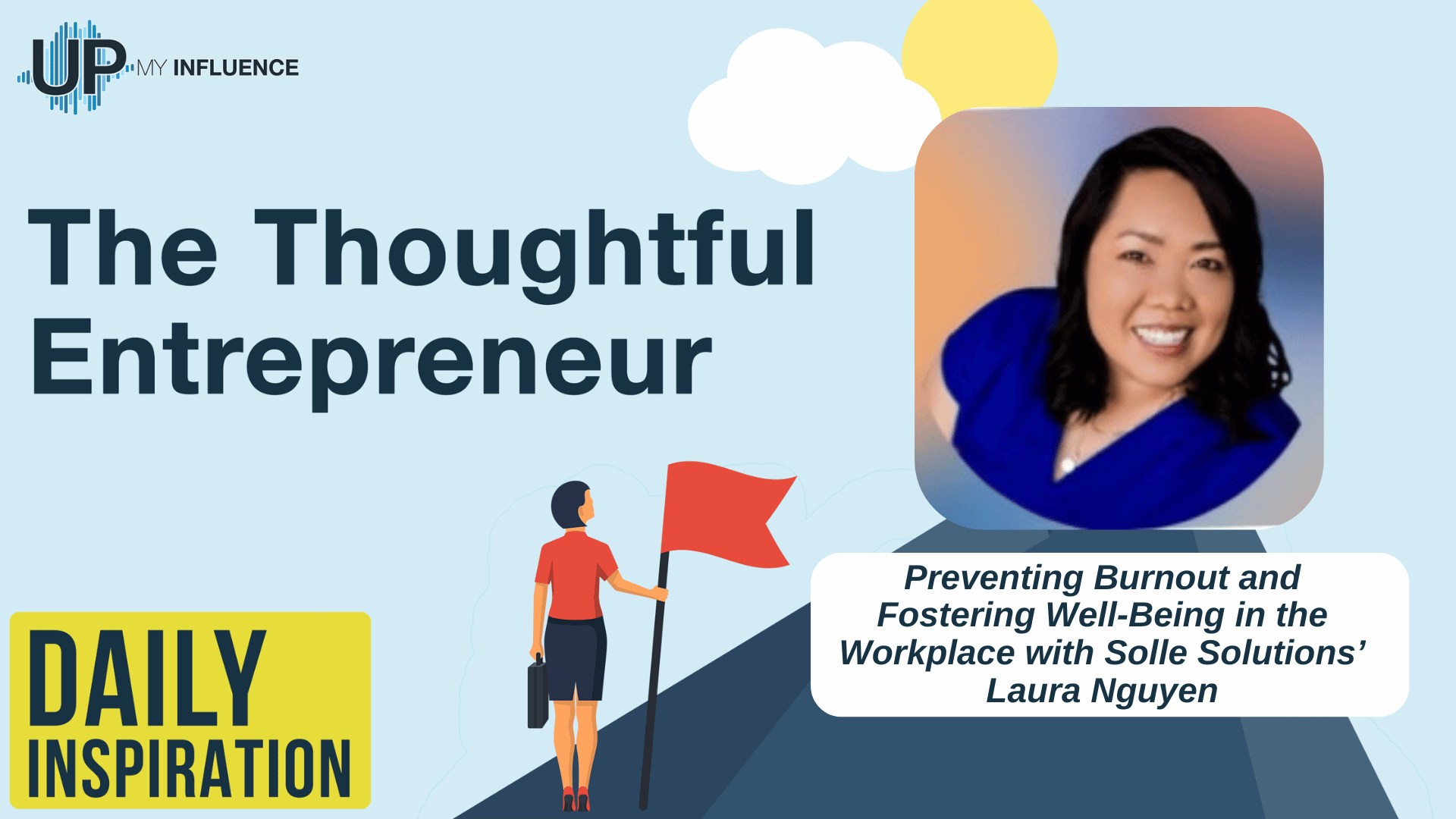THE THOUGHTFUL ENTREPRENEUR PODCAST
 Navigating Burnout, Embracing Self-Care, and the Power of Play
Navigating Burnout, Embracing Self-Care, and the Power of Play
In a recent episode of the Thoughtful Entrepreneur podcast, host Josh engages in a profound conversation with Laura Nguyen, an executive coach, marketing consultant, and founder of Solle Solutions. The episode delves into critical themes such as burnout, self-care, and the significance of play in both personal and professional settings. Laura shares her insights and experiences, offering valuable strategies for individuals and organizations to manage stress and enhance overall well-being.
Laura Nguyen brings over 20 years of experience in digital marketing and has recently transitioned into coaching after experiencing burnout herself. Her journey led her to develop a coaching framework designed to help others navigate similar challenges. Laura's upcoming book, “Career Break Compass,” aims to provide a structured approach to taking intentional time off and recovering from burnout. Burnout is a pressing issue, particularly among founders and business leaders, with nearly half reporting feelings of burnout, overwhelm, or anxiety, often considering exiting their organizations due to immense pressure.
Laura introduces her four-piece model for self-care, which consists of Play, Pause, Plan, and Pursue. Each component plays a crucial role in maintaining a healthy work-life balance and preventing burnout. Play is essential for creativity and problem-solving, Pause involves regular check-ins and mindfulness, Plan focuses on setting and achieving goals, and Pursue encourages engaging in passions and new experiences. Laura also outlines eight steps to overcome fear and emphasizes the importance of building authentic relationships in business. As the episode wraps up, Laura invites listeners to visit her website for free resources and encourages everyone to prioritize their well-being and seek joy in their daily lives.
About Laura Nguyen:
Laura Nguyen has nearly 20 years of experience in digital marketing, advertising, and eCommerce. She is an experienced growth-focused marketing executive with an extensive background in data-driven marketing, demand generation and branding for DTC and B2B Fortune 500 companies, private equity and private businesses. She has led high-performing teams to achieve organizational growth and market share dominance.
As an advocate for diversity and inclusion, Laura led business resource groups at the corporate level. Laura received her Bachelor of Arts and Bachelor of Science at Truman State University, and her Master in Business Administration from Rochester Institute of Technology.
About Solle Solutions:
Solle Solutions provides consulting and fractional marketing leadership engagements. We begin with a comprehensive marketing opportunity assessment to understand the consumer and segmentation opportunities. We deliver strategic performance marketing recommendations to accelerate growth.
Apply to be a Guest on The Thoughtful Entrepreneur: https://go.upmyinfluence.com/podcast-guest
Links Mentioned in this Episode:
Want to learn more? Check out Solle Solutions website at
Check out Solle Solutions on LinkedIn at
https://www.linkedin.com/company/solle-solutions
Check out Laura Nguyen on LinkedIn at
https://www.linkedin.com/in/lauran546/
Don’t forget to subscribe to The Thoughtful Entrepreneur and thank you for listening. Tune in next time!
More from UpMyInfluence:
We are actively booking guests for our The Thoughtful Entrepreneur. Schedule HERE.
Are you a 6-figure consultant? I’ve got high-level intros for you. Learn more here.
What is your #1 Lead Generation BLOCKER? Take my free quiz here.
Want to learn more about all the podcasts managed by UpMyInfluence? Opt in here.

